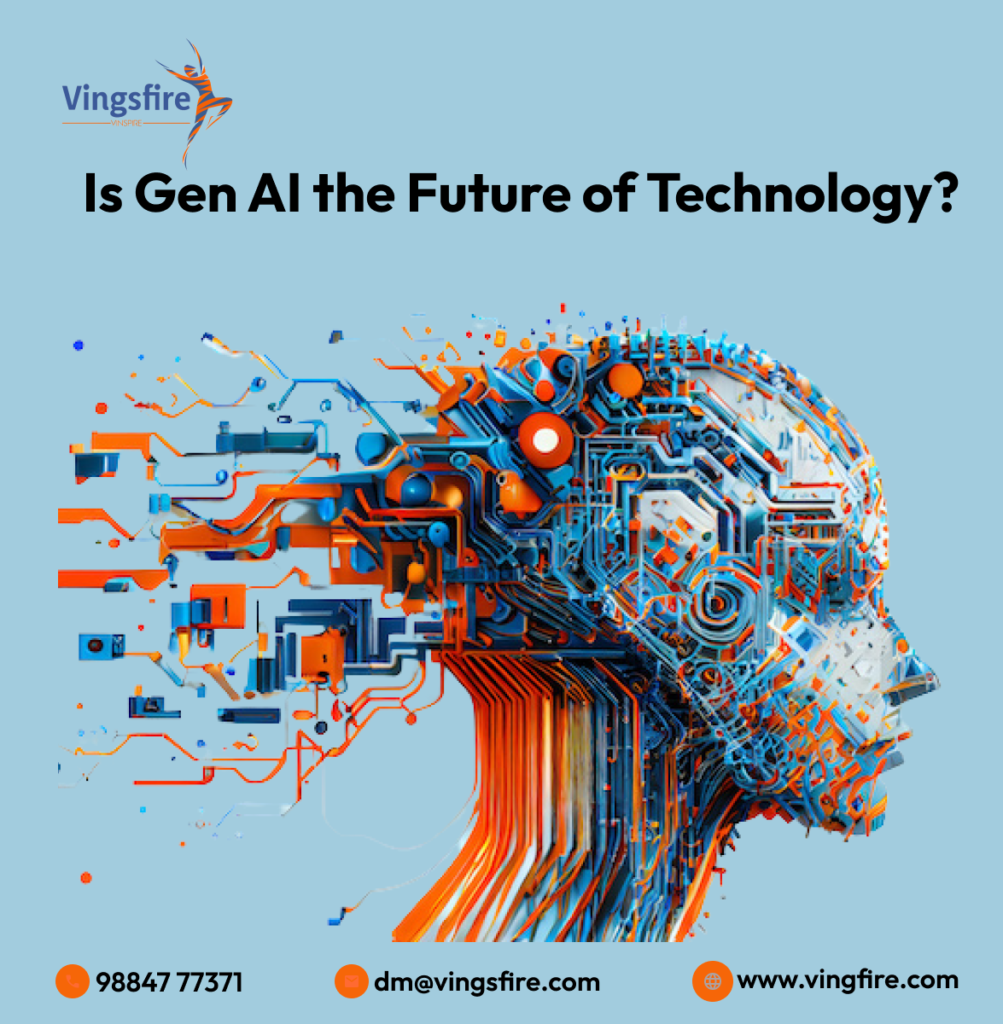
In the ever-evolving landscape of technology, the emergence of Generation AI, or Gen AI, has sparked profound discussions and debates. AI represents the next wave of artificial intelligence, characterized by systems and technologies that possess capabilities akin to human intelligence, if not exceeding it. This phenomenon raises crucial questions about the future trajectory of technology and its implications for society. In this comprehensive exploration, we delve into the intricacies of Gen AI, its potential, challenges, and the societal impact it may bring forth.
Understanding Gen AI
Gen AI encapsulates a paradigm shift in artificial intelligence, marked by advanced machine learning algorithms, neural networks, and deep learning models. Unlike its predecessors, Gen AI emphasizes adaptability, self-learning, and contextual understanding. It aims to emulate human-like cognitive processes, enabling machines to perceive, reason, and make decisions autonomously. This evolutionary leap in AI has the potential to revolutionize various sectors, including healthcare, finance, transportation, and beyond.
The Rise of Gen AI
The proliferation of data, coupled with exponential advancements in computing power, has paved the way for the rise of Gen AI. This generation of AI systems thrives on vast amounts of data, which fuel their learning and decision-making capabilities. Moreover, breakthroughs in algorithmic research, such as neural architecture search and reinforcement learning, have accelerated the development of Gen AI applications. From virtual assistants and autonomous vehicles to predictive analytics and personalized medicine, Gen AI is permeating every facet of our lives.
Unleashing Gen AI’s Potential
The potential applications of Gen AI are boundless, promising transformative changes across industries and domains. In healthcare, AI enables early disease detection, personalized treatment plans, and predictive analytics for better patient outcomes. In finance, it powers algorithmic trading, risk management, and fraud detection with unparalleled speed and accuracy. Moreover, Gen AI holds immense promise in addressing complex societal challenges, including climate change, poverty, and urbanization, through data-driven insights and decision-making.
Challenges and Ethical Considerations
Despite its transformative potential, Gen AI presents significant challenges and ethical considerations that warrant careful scrutiny. One of the foremost concerns is the issue of bias inherent in AI systems, stemming from biased training data or algorithmic biases. This can perpetuate and amplify existing societal inequalities, leading to discriminatory outcomes in areas such as hiring, lending, and criminal justice. Moreover, the opacity of AI decision-making processes raises questions of accountability, transparency, and interpretability, necessitating robust regulatory frameworks and ethical guidelines.
Socioeconomic Implications
The widespread adoption of Gen AI is poised to reshape the socioeconomic landscape, with profound implications for labor markets, skills development, and income distribution. While AI-driven automation may streamline processes and boost productivity, it also poses challenges such as job displacement and skill mismatches. As routine tasks become automated, the demand for human labor may shift towards roles that require creativity, emotional intelligence, and complex problem-solving skills. Therefore, fostering a culture of lifelong learning and reskilling is imperative to mitigate the adverse effects of technological disruption.
The Human-Machine Collaboration
Contrary to popular narratives of AI replacing humans, the future is likely to witness a symbiotic relationship between humans and machines, where each complements the strengths and mitigates the weaknesses of the other. This human-machine collaboration, often referred to as “augmented intelligence,” harnesses the unique capabilities of both humans and AI systems to achieve synergistic outcomes. By leveraging AI for tasks such as data analysis, pattern recognition, and decision support, humans can focus on higher-order cognitive functions, innovation, and empathy-driven interactions.
Ensuring Responsible AI Development
As we navigate the era of Gen AI, ensuring responsible AI development and deployment is paramount to safeguarding human welfare and promoting societal well-being. This entails adherence to ethical principles such as fairness, transparency, accountability, and privacy throughout the AI lifecycle. Additionally, fostering multidisciplinary collaborations involving technologists, policymakers, ethicists, and civil society is essential to address the complex socio-technical challenges posed by AI. By prioritizing human-centric design and ethical AI practices, we can harness the transformative potential of AI while mitigating its risks.
Conclusion
In conclusion, It represents a pivotal juncture in the evolution of technology, with far-reaching implications for society, economy, and governance. Its transformative potential holds promise for addressing some of humanity’s most pressing challenges, from healthcare and education to sustainability and social equity. However, realizing this potential requires proactive efforts to address ethical concerns, socioeconomic implications, and the need for human-centered AI development. By embracing a future where humans and machines collaborate synergistically, we can harness the power of Gen AI to create a more inclusive, sustainable, and prosperous world for all.
This comprehensive exploration of Gen AI underscores the imperative of informed discourse, ethical stewardship, and collective action in shaping the future of technology. As we embark on this transformative journey, let us endeavor to harness the potential of Gen AI for the betterment of humanity, mindful of its profound implications and responsibilities.
